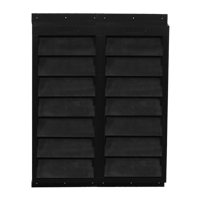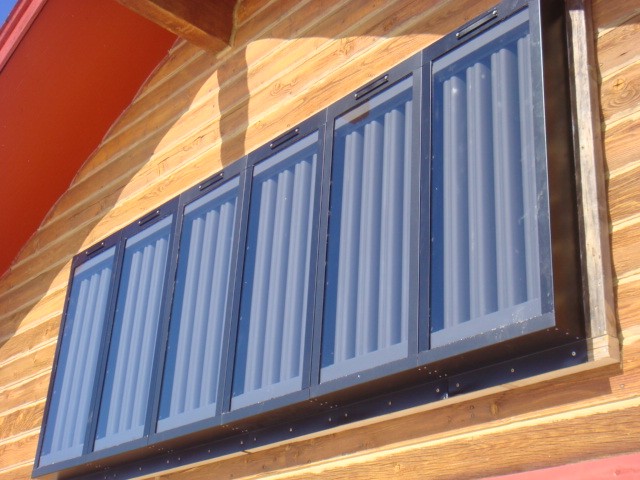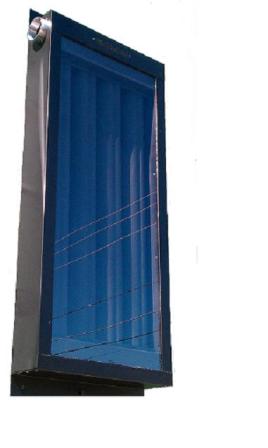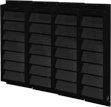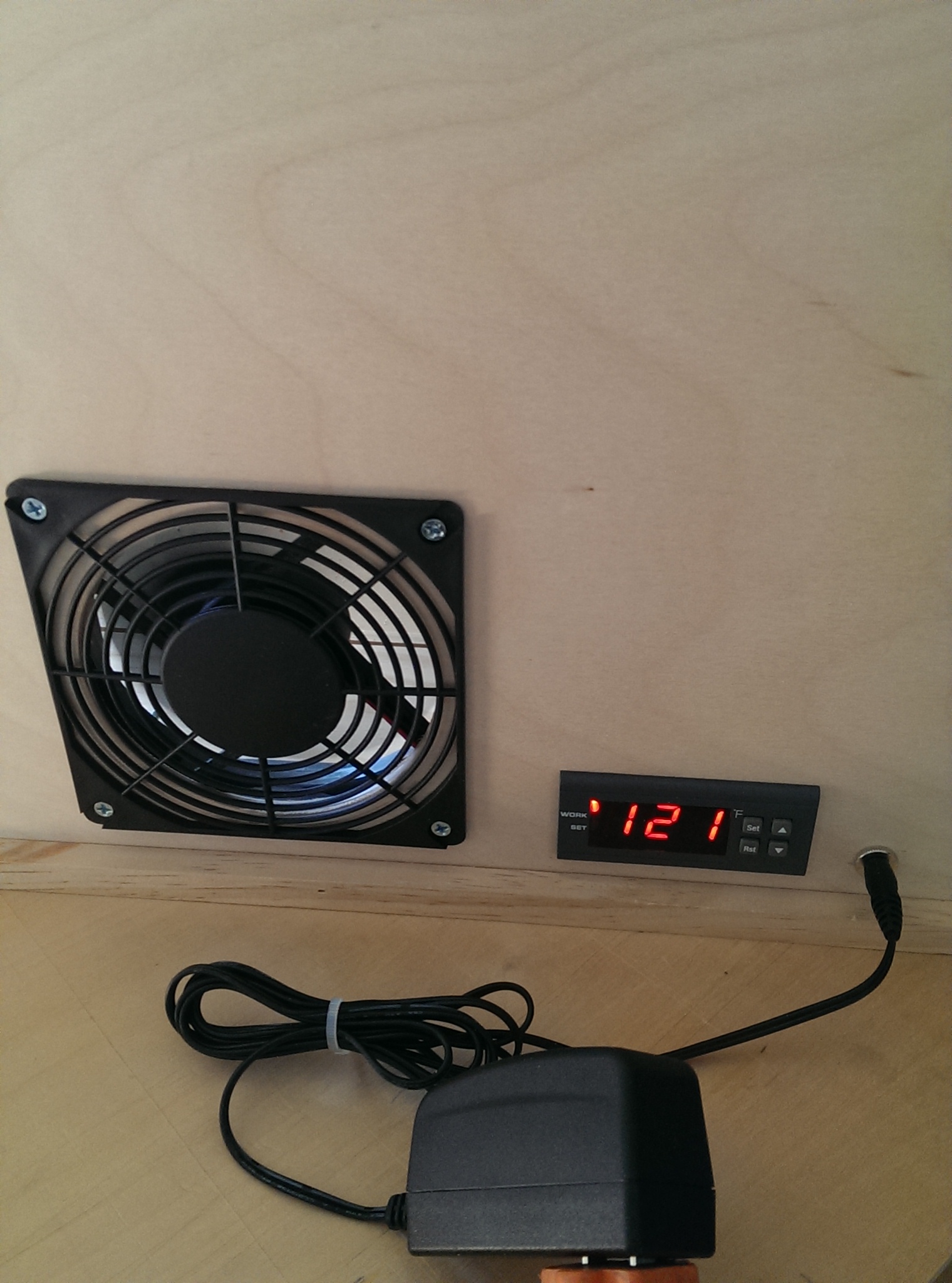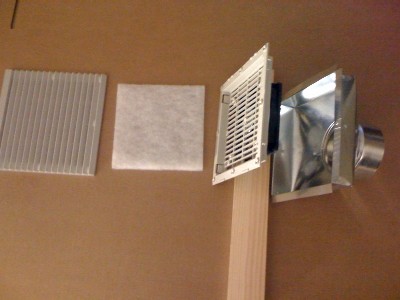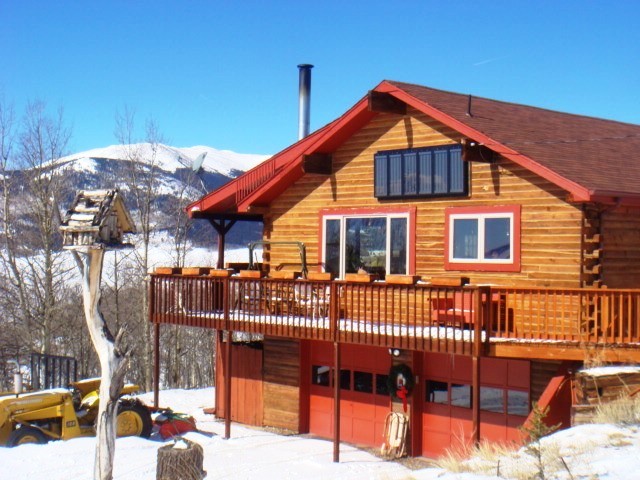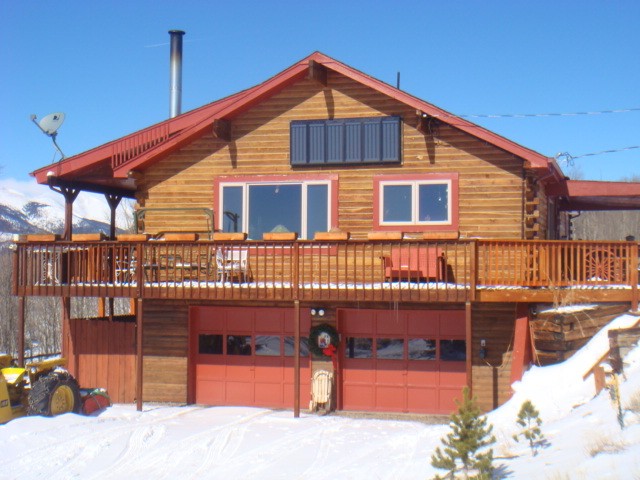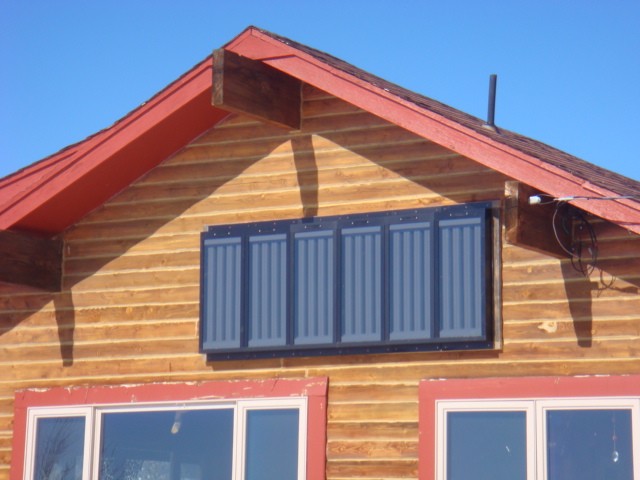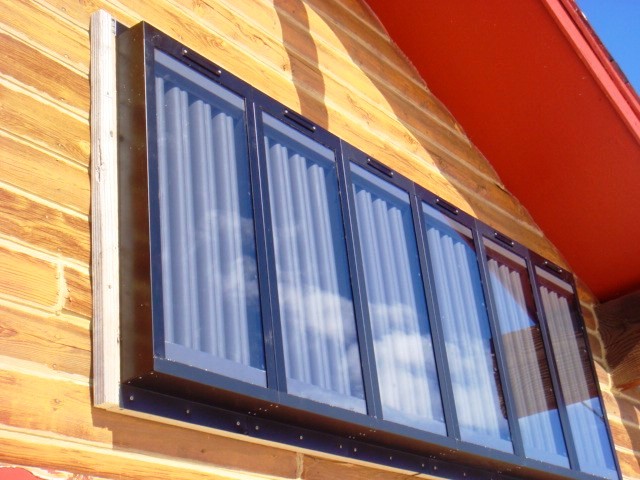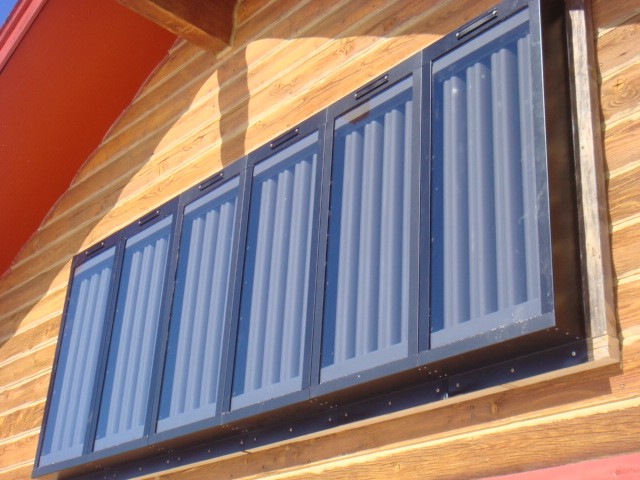
Solar Air Heater - Solar Air Heating
Solar Air
Heater manufacturer.
"A Greener
Energy Solution For the World"
|
Featured Items
3036
The Model 3036 is 30 inches wide by 36 inches tall. These two
Model have the 4 inch entry and exit hole in the back side of the
assemblies.
1536P 6-Panel Array
Solar Air Heater Profile Series 6-Panel Array.
1536 CTR Step-Wise heating technology™
The Model 1500 "High Heat" Series
Solar Air Heater is a Module Array
Assembly for Commercial and
Residential application. High Heat
output with Patented "Step-Wise
Heating Technology".
$369.95
1536P
The price includes 4 Model(s)
1536P for $1,469.95. The
discounted price represents
almost a 30% discount –
another industry first for
consumers from Solar Air
Systems.
6036
The Model 6036 is 60 inches wide by 36 inches tall. The 4 inch
entry and exit hole in the back side of the left hand and right
module assemblies.
$1,865.95
SWH Temp Switch
Digital thermometer fan switch. Fan not included.
Outside Left and Right 1536
Left side and right side thru the wall Model 1536. Sold in pairs. Order in between modules in pairs 2,4,6,8...etc.
208WVK
This kit is complete with (2 ea.) custom 8" x 8" wall vents with washable filters, metal wall duct mounting assembly. 4 inches O.D.
|
|
Solar Air Heater Solar Air Heater Installation Narrative –Assembly time for two novices was approximately 4 hours from start to finish.
Planning ahead would simplify the installation of each Solar Air module. Prior to starting the installation I had my installation all planned out, thanks to he help of the owner of Solar Air Systems. Because of my location, we decided that a vertical installation would be fine and there is no need to angle the modules. Also, we decided a boxed frame with siding insulation behind the modules would work better than just attaching them to the uneven surface of my house.
As you can see illustrated in the pictures, my home is a log cabin design. Framing the area and placing exterior siding insulation inside the wood frame would be the easiest solution to the uneven surface area where the solar air modules would be installed. The frame attaches to the exterior walls (which are not flat) and the siding insulation is just rigid enough to mold over the uneven exterior surface. With the sudden and rapid temperature change I’m hoping the insulation will protect the panels and eliminate any air gaps between the back of each module and my house. Snowy weather and strong winds were a factor too.
Connecting panels 1 thru 6 (Right to left) in a raging snow storm was no fun but each Solar Air Module went up fast and easy. The fit is very good between panels. The round machined aluminum fitting is permanently attached to each module and slid right into place connecting the modules together. It’s a real nice design. I plan on sealing the frame with black silicon caulking around the outer panels to keep wind from circulating behind the panels.
When installing the last panel (#6) it took a little more time than expected. The trick is to keep panel (#5) loose so you can place panel (#6) over the 4 inch hole going into the house. Then tighten the mounting screws.
Plugged in the fan and waited for the weather to clear. At about noon the sun came out. I have an old Radio Shack indoor/outdoor thermometer. I placed the probe in behind the fan into the 1st panel. The temperature rise was almost instant. Found out the old thermometer only went to 159 degrees F and started flashing HHH after that. So I don’t know the max temp inside the panel, only that it was over 159 degrees F all day. Outside air temp at the time was around 15 degrees F with a wind of 8 mph. Air temperature coming into the room is a constant 82 degrees. It works!
E.Miller Fairplay, CO
|
|
Made in
the U.S.A.
"A Greener Energy Solution For the
World"
